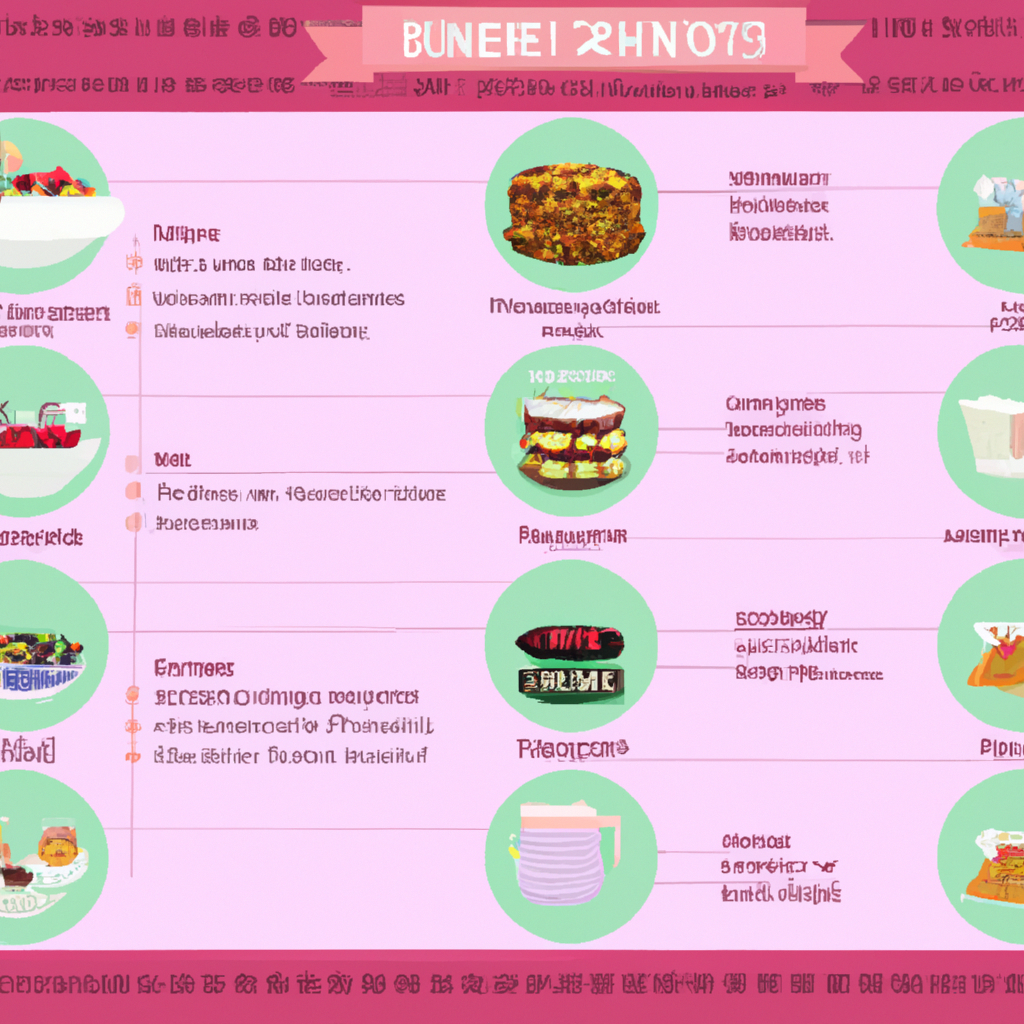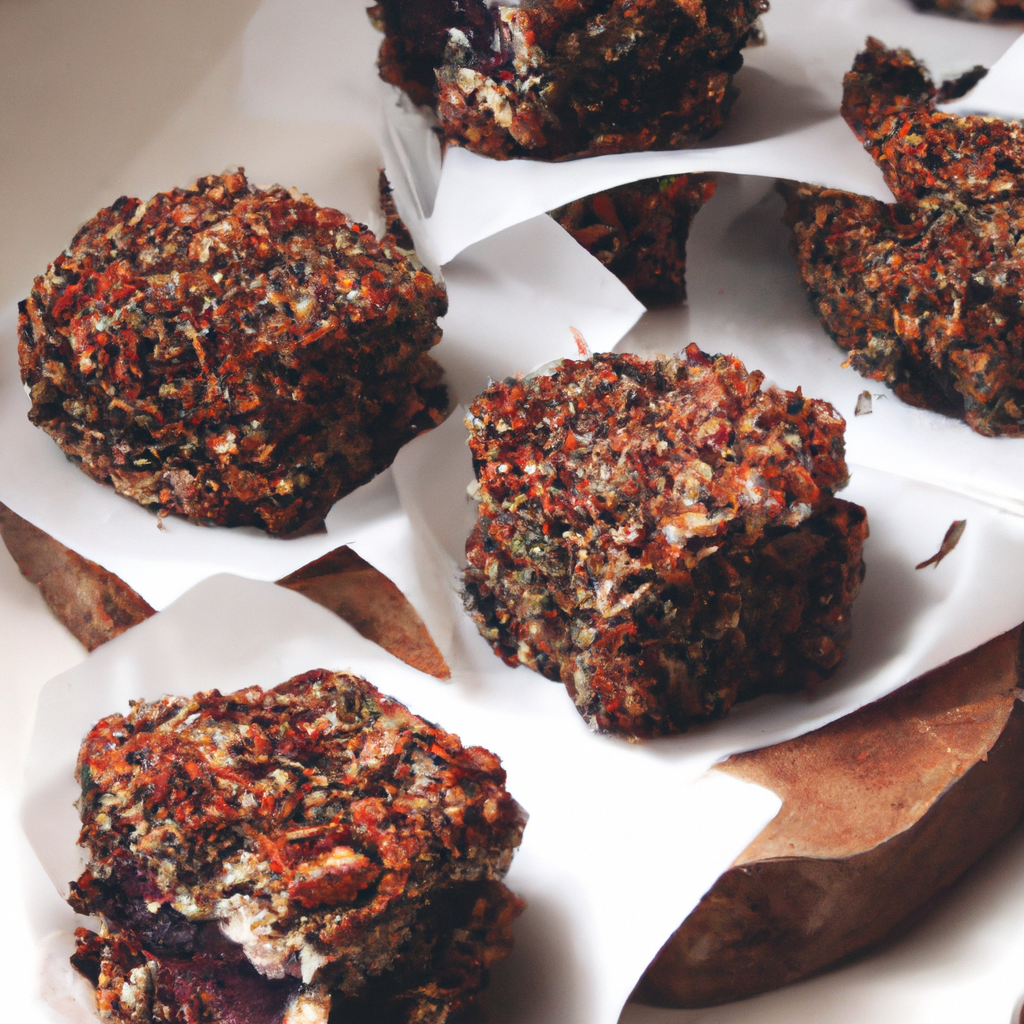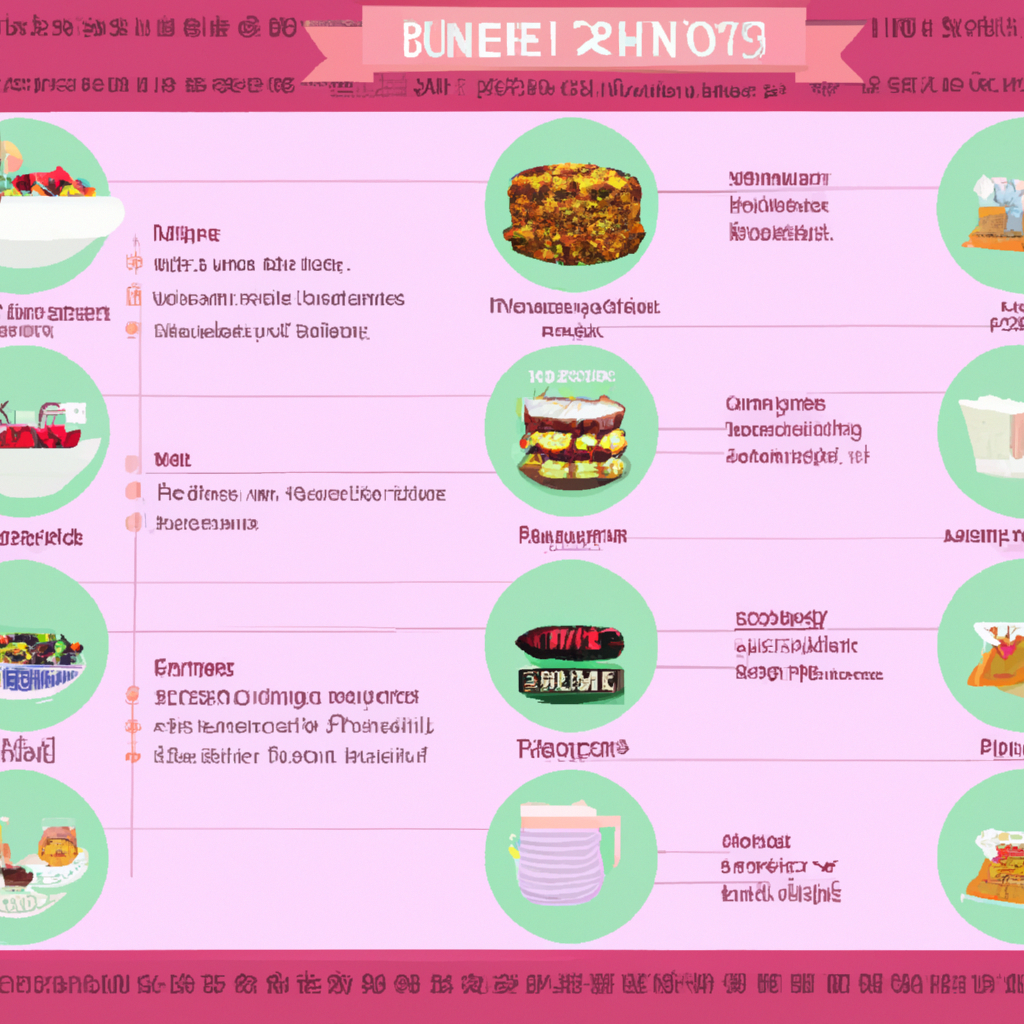
You may think that avoiding all desserts and sweets, even if they’re homemade, is the best way to stay healthy and maintain a balanced diet. However, you might be surprised to learn that homemade treats can actually have some benefits! While moderation is key, indulging in occasional homemade desserts can be a delightful way to satisfy your sweet tooth and enjoy the blissful moments that come with it. In this article, we’ll explore why completely abstaining from homemade treats may not be necessary and how you can still enjoy them while being mindful of your overall health goals. So, let’s take a closer look at why you shouldn’t completely miss out on those moments of homemade sweetness.
The Concerns About Desserts and Sweets
Health Risks Associated with Excessive Sugar Consumption
Excessive sugar consumption has been linked to numerous health risks. Consuming too much sugar regularly can increase the risk of weight gain, obesity, and chronic diseases such as diabetes. It can also have negative effects on cholesterol levels and lead to dental health problems. It’s important to be aware of these risks and take steps to limit sugar intake.
Weight Gain and Obesity
An excessive intake of desserts and sweets, which are often high in sugar and calories, can contribute to weight gain and obesity. When you consume more calories than your body needs, the excess energy is stored as fat. Regularly indulging in sugary treats can lead to an imbalance in the energy equation and ultimately result in weight gain.
Impact on Dental Health
Consuming desserts and sweets that are high in sugar can have a detrimental effect on dental health. The bacteria in our mouths feed on sugar and produce acids that can lead to tooth decay and cavities. Regular brushing, flossing, and limiting sugar intake are essential for maintaining good dental health.
Risk of Chronic Diseases like Diabetes
High sugar consumption, particularly from processed desserts and sweets, has been linked to an increased risk of developing chronic diseases like diabetes. When you consistently consume sugary treats, your body’s ability to regulate blood sugar levels can be compromised, leading to insulin resistance and an increased risk of developing type 2 diabetes.
Negative Effects on Cholesterol Levels
Consuming excessive amounts of sugar, especially in the form of desserts and sweets, can negatively impact cholesterol levels. It can lower the levels of “good” cholesterol (HDL) and raise the levels of “bad” cholesterol (LDL) and triglycerides. This imbalance can increase the risk of heart disease and other cardiovascular problems.
Understanding Homemade Desserts and Sweets
Ingredients and Control of Added Sugar
One advantage of homemade desserts is the ability to control the ingredients and amount of added sugar. By using natural sweeteners like honey or maple syrup, or reducing the amount of sugar in a recipe, you can enjoy your favorite treats with less sugar. Additionally, incorporating fruits and vegetables into desserts adds natural sweetness and essential nutrients.
Moderation in Portion Sizes
While homemade desserts can be made healthier, it’s still important to practice moderation in portion sizes. Even if a dessert is made with nutritious ingredients, consuming large quantities can still result in excess calorie intake. Paying attention to portion sizes helps maintain a balanced approach to enjoying sweets without overindulging.
Healthier Substitutes and Alternatives
When making homemade desserts, there are plenty of healthier substitutes and alternatives available. Using whole wheat flour or almond flour instead of refined flour adds fiber and nutrients. Replacing butter with healthier options like coconut oil or mashed bananas can reduce saturated fat content. Experimenting with these substitutions can result in healthier and equally delicious treats.
Nutritional Benefits in Some Homemade Desserts
Certain homemade desserts can offer nutritional benefits. For example, desserts made with nuts, seeds, and dried fruits can provide essential fats, fiber, and vitamins. Adding ingredients like Greek yogurt or chia seeds can increase protein content. By choosing recipes that incorporate these nutritious ingredients, you can enjoy desserts that offer more than just indulgence.

Determining the Quality of Homemade Desserts
Avoiding Artificial Additives and Preservatives
One advantage of homemade desserts is the ability to avoid artificial additives and preservatives commonly found in store-bought sweets. By making desserts from scratch, you have control over the ingredients and can opt for natural options. This eliminates unnecessary additives that may have negative health effects.
Utilizing Fresh and Natural Ingredients
Using fresh and natural ingredients is key to ensuring the quality of homemade desserts. Fresh fruits, vegetables, and herbs enhance the flavor and nutritional value of desserts. Avoiding processed and packaged ingredients helps reduce the intake of unhealthy additives and chemical preservatives.
Selecting Whole Grains and Fiber-rich Options
Choosing whole grains, such as whole wheat flour or oats, as the base for homemade desserts increases the fiber content. Fiber aids digestion, promotes satiety, and helps maintain stable blood sugar levels. Adding fiber-rich ingredients like flaxseeds or chia seeds can also boost the nutritional value of homemade treats.
Considering Nutritional Value in Homemade Desserts
When preparing homemade desserts, it’s important to consider the overall nutritional value. Including ingredients that provide essential nutrients, such as vitamins, minerals, and antioxidants, helps ensure that the indulgence also contributes to your overall health. Opt for recipes that offer a balance of flavor and nutritive value.
The Role of Moderation
Balancing Overall Diet and Lifestyle
When it comes to enjoying desserts and sweets, the key is balance. Incorporating treats into an overall healthy diet and lifestyle is essential. Focusing on nutrient-dense foods like fruits, vegetables, lean proteins, and whole grains should remain a priority, while desserts can be enjoyed in moderation without derailing overall health goals.
Establishing Personal Health Goals
Setting personal health goals is important for determining the role of desserts and sweets in your diet. Whether it’s maintaining a specific weight, managing blood sugar levels, or improving overall well-being, understanding your goals allows for better decision-making when it comes to dessert consumption.
Enjoying Desserts and Sweets Occasionally
Treating desserts and sweets as occasional indulgences rather than daily staples is a key aspect of moderation. By enjoying these treats in smaller quantities and infrequent frequency, you can satisfy your cravings without sacrificing your health and fitness goals.
Mindful Eating and Portion Control
Practicing mindfulness during dessert consumption involves being fully present and aware of each bite. It allows for savoring the flavors and textures, and recognizing signals of satiety. Portion control is also essential to ensure that you are not consuming excessive calories while enjoying your favorite desserts.

Taking Control of Homemade Dessert Preparation
Baking versus Frying
When it comes to preparing homemade desserts, choosing baking over frying is generally a healthier option. Baking uses less oil and results in a lighter, less fatty final product. It also helps retain more nutrients and reduces the formation of harmful compounds that can be created during frying.
Reducing Added Sugar in Recipes
Controlling the amount of added sugar is important in homemade dessert preparation. By reducing the sugar content in recipes, you can still enjoy the sweetness without the negative health impacts. Experimenting with alternative sweeteners or using fruits to naturally sweeten the desserts can help achieve the desired sweetness level.
Using Nutrient-dense Ingredients
Incorporating nutrient-dense ingredients into homemade desserts can improve their overall nutritional value. Adding nuts, seeds, dried fruits, or pureed vegetables can enhance the fiber, vitamin, and mineral content. Using ingredients like Greek yogurt or avocado can increase the protein and healthy fat content of desserts.
Experimenting with Natural and Healthy Sweeteners
Exploring natural and healthy sweeteners like honey, maple syrup, or stevia can be a great way to reduce the reliance on refined sugar in homemade desserts. These alternatives offer a different flavor profile and additional nutrients while still satisfying your sweet tooth.
Homemade Desserts for Special Dietary Needs
Gluten-Free Options
For individuals with gluten intolerance or celiac disease, there are a variety of gluten-free dessert options available. Using almond flour, coconut flour, or gluten-free baking mixes can help create delicious treats that are safe to consume.
Vegan or Plant-based Alternatives
For those following a vegan or plant-based lifestyle, homemade desserts can still be enjoyed. Utilizing plant-based ingredients like coconut milk, almond milk, or flax seeds can provide the required moisture and richness. There are many plant-based dessert recipes that can cater to a vegan diet.
Reduced Allergenic Ingredients
For individuals with allergies or intolerances to specific ingredients, homemade desserts allow for customization and the avoidance of allergens. By substituting ingredients like dairy, eggs, or nuts with suitable alternatives, homemade treats can still be enjoyed without compromising on taste or safety.
Customizing Recipes for Specific Health Conditions
Specific health conditions may require modifications to homemade dessert recipes. For example, individuals with diabetes may need recipes that are lower in added sugar and carbohydrates. Customizing dessert recipes to cater to specific health conditions allows for enjoyment while still adhering to dietary restrictions and requirements.
Balancing Indulgence and Nourishment
Savoring Desserts Mindfully
Instead of mindlessly indulging in desserts, savoring them mindfully can enhance the experience. Pay attention to the flavors, textures, and aromas while eating. Slow down and enjoy each bite, allowing yourself to fully appreciate the indulgence.
Pairing Desserts with Nutritious Ingredients
Pairing desserts with nutritious ingredients can help strike a balance between indulgence and nourishment. Adding fresh fruits, yogurt, or nuts to desserts can contribute vitamins, minerals, and healthy fats. This combination allows you to satisfy your sweet tooth while also providing some nutritional benefits.
Incorporating Homemade Desserts into a Balanced Diet
Incorporating homemade desserts into a balanced diet means recognizing that they are a part of a larger food intake. It’s important to consume a variety of whole foods and nutrients to support overall health and well-being. By including homemade desserts in moderation and choosing nutritious options, they can complement a balanced diet.
Seeking Professional Advice and Guidance
When it comes to determining the right balance and approach to homemade desserts, seeking professional advice and guidance can be beneficial. Registered dietitians can provide personalized nutrition plans and offer insights on how to incorporate homemade desserts into a healthy lifestyle.
Considering Individual Health Factors
Age and Activity Level
Individual health factors such as age and activity level play a role in determining dessert consumption. Younger individuals with higher activity levels may have more leniency when it comes to indulging in desserts. Older adults or those with sedentary lifestyles may need to exercise more caution to maintain a healthy balance.
Metabolic Rate and Caloric Needs
Metabolic rate and caloric needs vary among individuals. Some people may have higher metabolisms and can tolerate more calories from desserts, while others may have slower metabolisms and need to be more mindful of their intake. Understanding your own body’s needs is crucial in determining portion sizes and frequency of indulgence.
Existing Medical Conditions
Existing medical conditions can impact how homemade desserts fit into an individual’s diet. For example, individuals with diabetes or high blood pressure may need to limit their sugar or sodium intake. Consulting with a healthcare professional can help determine the appropriate approach to dessert consumption while managing existing conditions.
Allergies and Intolerances
Individuals with allergies or intolerances to certain ingredients must consider these factors when enjoying homemade desserts. It’s important to read labels, be aware of potential cross-contamination, and choose recipes that accommodate specific dietary needs. Homemade desserts allow for customization and can safely cater to allergies and intolerances.
Mindful Eating Practices
Understanding Hunger and Fullness Cues
Practicing mindful eating involves listening to your body’s hunger and fullness cues. It’s important to eat when you are hungry and stop when you are satisfied, rather than stuffing yourself or restricting too much. This awareness allows for a healthier relationship with desserts and prevents overindulgence.
Enjoying Desserts as a Reward or Treat
Considering desserts as a reward or treat instead of an everyday necessity promotes a mindful approach to consumption. By savoring desserts on special occasions or as a small reward, you can fully appreciate their indulgent nature and avoid mindless or excessive eating.
Avoiding Emotional Eating Patterns
Emotional eating, or turning to desserts for comfort or stress relief, can lead to unhealthy habits and an unhealthy relationship with food. Being aware of emotional triggers and finding alternative coping mechanisms allows for a healthier approach to dessert consumption.
Listening to the Body’s Needs
Paying attention to how your body responds to desserts is crucial in determining their role in your diet. If certain treats cause discomfort or adverse reactions, it may be necessary to reassess their inclusion in your diet. Listening to your body’s needs and adjusting accordingly is key to achieving a balance between indulgence and nourishment.
Seeking Professional Advice and Support
Consulting with a Registered Dietitian
When in doubt about how to best incorporate homemade desserts in your diet, consulting with a registered dietitian can provide valuable guidance. They can help analyze your individual needs and create a personalized nutrition plan that includes a balanced approach to dessert consumption.
Developing a Personalized Nutrition Plan
A personalized nutrition plan takes into account individual health goals, dietary restrictions, and lifestyle factors. With the guidance of a registered dietitian, you can develop a plan that allows for the enjoyment of homemade desserts while supporting overall health and well-being.
Exploring Healthy Dessert Recipes and Resources
There are numerous resources available that offer healthy dessert recipes and inspiration. From cookbooks to websites, exploring these options can provide a variety of ideas for homemade treats that are both delicious and nutritious.
Joining Supportive Communities or Groups
Joining supportive communities or groups can provide motivation, encouragement, and a sense of accountability when it comes to maintaining a balanced approach to dessert consumption. Sharing experiences, recipes, and tips with others who have similar goals can be a valuable support system.
In conclusion, homemade desserts can be enjoyed in moderation while still prioritizing overall health. By understanding the concerns associated with excessive sugar consumption, utilizing healthier ingredients, practicing portion control, and balancing indulgence with nourishment, you can savor your favorite treats without compromising your well-being. Remember to consider your individual health factors, practice mindful eating, and seek professional advice when needed. With the right approach, homemade desserts can be a delightful addition to a balanced and satisfying diet.













Leave a Reply